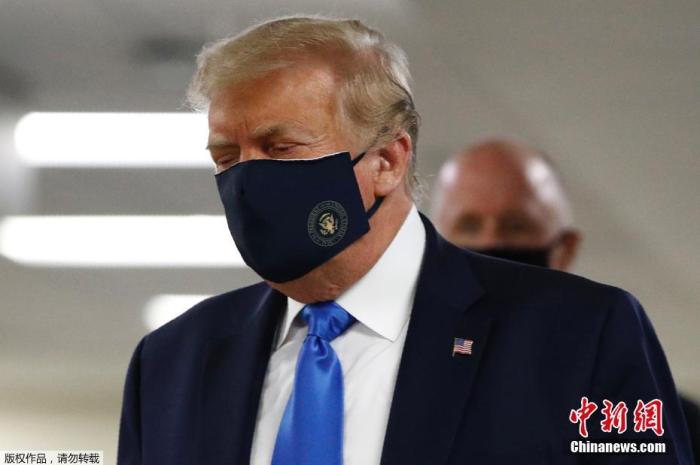China News Service, September 2 reported that on September 1, local time, the U.S. government stated that the U.S. will not cooperate with international countries to develop, produce, and equitably distribute the new coronavirus vaccine because the U.S. does not want to be affected by the World Health Organization. Limitations of multilateral organizations.
American experts pointed out that the US move was a "huge gamble" and this decision was "short-sighted."
According to reports, more than 170 countries and regions are discussing participation in the Global Access Mechanism for Covid-19 Vaccines (COVAX), which aims to accelerate vaccine development, ensure vaccine doses obtained by all countries, and allocate them to the highest risk of disease Crowd.
The plan is jointly led by WHO, the Global Alliance for Vaccines and Immunization (Gavi) and the Alliance for Epidemic Prevention Innovation (CEPI).
Data map: US President Trump.
According to the report, the "new crown vaccine global access mechanism" has been supported by traditional US allies, including Japan, Germany and the European Commission.
But the United States stated that it would not participate, partly because the White House did not want to cooperate with the World Health Organization.
The report pointed out that this decision gave up the opportunity to obtain a dose from a batch of promising vaccine candidates, which is a potential risk strategy.
"The United States has adopted a strategy of'single it alone'. This is a huge gamble." said Lawrence Gostin, a professor of global health law at Georgetown University in the United States.
Kendall Hoyt, an assistant professor at the Dartmouth Gessel College of Medicine, said that the United States can participate in the "New Crown Vaccine Global Access Mechanism" while seeking bilateral agreements with pharmaceutical companies, which increases the possibility of obtaining safe vaccines. Sex.
"From a simple risk management perspective, this decision is short-sighted." She said.
According to reports, the actions of the United States will also affect the situation in other places.
Experts say that the idea behind the "Global Access Mechanism for New Coronary Vaccines" is to prevent hoarding and focus first on vaccinating high-risk populations in each country. This strategy may lead to better health outcomes and lower costs.
However, the non-participation of the United States makes this even more difficult.
"When the United States said it would not participate in any form of multilateral efforts to ensure access to vaccines, it was really a blow." said Su Li Muen, co-director of the Global Health Center at the Geneva Institute of International and Development Studies.
In fact, some members of the U.S. government expressed interest in adopting a cooperative approach, but were ultimately rejected.
A senior U.S. administration official who asked not to be named said that Secretary of Health Alex Hazard and Deputy Secretary of State Stephen Biegen are interested in the plan.
Officials say that some people in the government oppose participation and believe that the United States has enough new coronavirus vaccine candidates for its own use in advanced clinical trials.
Prior to this, on July 6, the US government officially notified UN Secretary General Guterres that the United States would withdraw from the WHO in July 2021.
US President Trump stated on May 29 that in view of the WHO's refusal to implement the reforms requested by the United States, the United States will terminate its relationship with the WHO and transfer the dues that should have been paid to the organization elsewhere.
This move has attracted strong criticism from the international community and the United States, who believes that Trump is passing on responsibility for the government's ineffective response to the epidemic and will undermine international public health cooperation.

